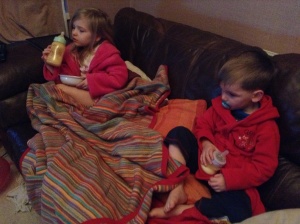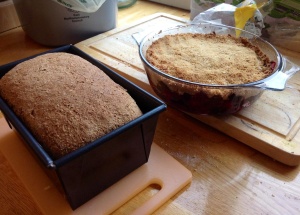
All In The Leaves by Pat Elliott
Today I am thrilled to welcome Pat Elliott, author of All In The Leaves, which tells the story of Anna, nearly thirty, living at home and single. When a chance bout of tears leads to a tea leaf reading she is shown a wonderful future: new career, new home, new husband. All by Christmas. All she has to do is get on and make the necessary changes to ensure it happens. When calamity strikes, the battle for happiness begins.
Pat spent eighteen years of her working life in a magazine company, before becoming self employed as a reflexologist. She has had factual pieces published on reflexology and on adopting a dog. All in the Leaves is her first novel, with a second, Leaves for Chloe, currently being written. She has also written a volume of short stories, called At Sanctuary’s Gate.
Pat was born in the Alexandra Palace area of London and currently resides in the Essex countryside, with her husband and adopted terrier. She has a great love for dogs, and is delighted when a rescue dog gets a second chance in life. She also loves to paint in watercolour. Her blog can be found here.
I asked Pat a few question about life, writing and All In The Leaves. I hope you enjoy learning more about her and her novel.
1. Tell us a little about yourself and how you decided to write fiction, after a life working in magazines?
I left the magazine world to set up my reflexology practice. I took up reflexology initially to help my husband, who had a back injury and suffered with subsequent depression. I feel that people who suffer injuries and depression are given short shrift in this world of ours – and if I can help them, I will. Living with injury and depression is not an easy road – either for the person suffering, or the one who tries to help. I see quite a few people who fall into this category. For the helper, it is paramount to maintain outside interests. With that in mind, I like to learn something new. I enrolled on an adult education course which attracted me – Creative Writing, Short Stories. This was such a fabulous course that I signed up for the follow up – Creative Writing, Novels. I was attracted to the fact that after initial instruction, you were out there on your own, getting on it with it. That fits my working life much better than something rigid.
It also means that I can be at home, yet still have an outside interest. The life of a writer can be one of any life they choose to write about. It’s a wonderful escape.
2. Your novel features dogs a great deal. Tell us about the dog(s) in your life

Pat and Missy
Yes, indeed. The love of dogs is a theme that runs in my novel. Anyone who owns a dog knows the unconditional love you get from these creatures. We are none of us so full of love, that we couldn’t do with a little extra.
My first dog was a jack russell, Spotty. She lived originally with my neighbours, but they were cruel to her. They’d split her head open by hitting her with a roofing tile – and then refused to take her to the vet. I took her. We spent our first night together under the duvet, on the sofa – after the vet had told us that her life hung in the balance. The first 24 hours were crucial. She lived, and stayed safe in our love for the next 16 years, until she passed, aged 18.
Once Spotty passed away, we went to Battersea Dogs and Cats Home to adopt another, where we met the wonderful Missy. Still a russell, but long legged and long haired – the opposite of Spotty. That was important to me, so that we’d never compare the two. Missy was in Battersea for almost two years, waiting for a home. I have nothing but admiration for the care that Battersea took over her. She was 8 years old when we adopted her. She’s 16 now and still a cheeky little minx – but I like that in a dog.
3. All in The Leaves is about tea leaf reading and has sections that are very spiritual. Are these drawn from your own experiences?
There are elements of my own experiences in the story. I did indeed have an Irish relative who could read tea leaves and was surprisingly accurate. Being the daughter of a Irishman, there is great Celtic lore and spirituality in my genes – and this shows in my writing. I like to weave some of that into my stories. I feel it adds another dimension.
4. The novel explores the beauty of Scotland, and Edinburgh in particular. As someone who lives in Essex, is there a secret yearning to live over the border? 🙂
I do live in Essex, yes! Originally my family were from Waterford, then Wexford, Eire. When the work situation forced some of the younger members of the family to spread their wings, some moved to London and some to Scotland. So I feel quite attached to both. Would I live there? I’d certainly consider it, should the opportunity present itself.
5. All in the Leaves is the first in a series of novels. Did you always intend to write a series?
No, originally, I didn’t. I started to write All in the Leaves as part of my novel writing course. When I spoke to other book reader friends, they asked would it be a series? I quite like each book to have an ending, so that’s what I did in Leaves, but I also saw the possibility that there could be other tea leaf readings and other books. Each complete to themselves. That’s when I decided to make a series.
6. The next book will be about Chloe. Tell us a little bit about it; is it set after All in the Leaves (and will we see more of horrid Howard and adorable Angus)?
Leaves for Chloe is set after All in the Leaves. It charts what happens to Chloe in the year after the end of the first book. Yes, horrid Howard does appear a fair bit in book two, like a bad penny, he always turns up! The adorable Angus also returns, patient and kind as ever. Some may say pushover, but he does have a core of steel.
7. You self-published your first novel. Was that something you intended from the start? How did you find the experience?

All In The Leaves – about tea leaf reading
Originally, I would have been thrilled to have an agent and a publisher. However, the more research I did, that route did not feel fine to me. The absolute decider was when I read about one poor man, who’d spent two years of his life writing his book, only to see it pulped after a few months on the bookshelves. It hadn’t performed as well and as quickly as the distributors wanted, so it was pulled.
I understand that they are a business, and shelf space is at a premium, but my heart went out to the man who’d lost his dream. I decided that if I self published, All in the Leaves could stay on the virtual shelves until it found its own market.
I chose to use ebook partners to convert and distribute my book. I couldn’t be happier with their service. I am not the person to spend hours over the computer, trying to work out how to format a book. Nor spend time dealing with different countries’ tax requirements. I much prefer to pay someone to do all that, so that I can concentrate on what I enjoy. Plus, they only take a fee. No percentage of your sales. That was a big plus to me, because it fit my idea of a professional service
8. You’re an artist and a reflexologist as well as an author; how do you manage your time? Do you find yourself torn between your different creative outlets?
No, I’m never torn. Reflexology is my bread and butter. That time comes first. In any spaces between clients, I balance the other two. As a writer yourself, you know there are times that you could bang your head on a wall, in frustration at not finding the right plot or device. In those times, I paint!
9. You have also published a collection of short stories, At Sanctuary’s Gate; how is writing short stories different to writing novels? Which do you prefer?
Short stories are for me quick insights. A novel is more of a slow, developmental burn. My short stories are more observational than dialogue filled, my novel is more about dialogue and personal interaction. I like them both. That’s not a cop-out – they both fulfil a different need in the writer me.
10. Finally, what advice would you give to someone just starting out in their writing career?
Firstly, write! If there’s a class available, get some instruction. A good tutor will encourage, instruct and inspire. If there’s no class, find the resources online or in your library. Help is there, if you look for it.
You can find out more about All in the Leaves and purchase a copy here. Thanks for reading.
















